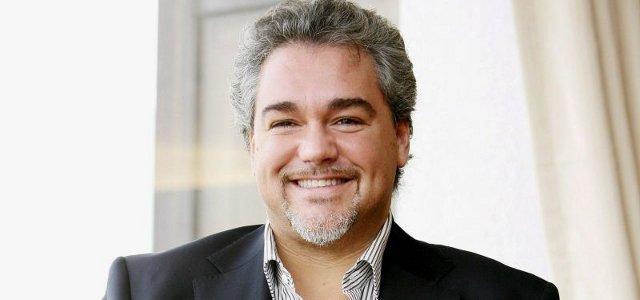Though he was to become known as one of the most talented tenors in the world, Salvatore Licitra did not have a musical childhood.
Born in Bern, Switzerland on 10 August 1968, Licitra was raised in Milan by Sicilian parents. With no musical training, he accepted his first job working as a graphic artist for Vogue Italia at the age of 18.
The tenor did not begin taking music lessons until he turned 19, after his mother overheard him singing along with the radio and encouraged him to pursue his newly discovered talent.
His studies took him to the Music Academy of Parma and the Corsi Verdiani. After 8 years, Licitra moved on to study under tenor Carlo Bergonzi at his voice academy in Busseto.
Licitra debuted in 1998, performing Un Ballo in Maschera in Parma during a showcase for Bergonzi's students. His warm reception gave him the notoriety and confidence to audition for a production of La Forza del Destino under Riccardo Muti at La Scala.
After his success as Don Alvaro, Licitra was hired by Muti again in 2000 to sing Tosca at La Scala.
With his fame growing in Italy, Licitra made an unforgettable debut in New York that earned him the nickname ‘Pavarotti’s heir.’
The tenor was flown to New York on little notice to fill in for Luciano Pavarotti in the second performance Tosca at the Met. Though the audience had expected Pavarotti, they applauded Licitra with a standing ovation as the curtains closed.

In addition to the Met and La Scala, Salvatore Licitra sang major roles at leading opera companies including the Vienna State Opera, Opernhaus Zurich, Munich’s Bayerische Staatsoper, Deutsche Oper and Staatsoper Berlin, Teatro alla Scala, Arena di Verona, London’s Royal Opera, Paris Opera Bastille, Tokyo, Taiwan, China, the opera companies of Rome, Naples, Florence, Parma, Palermo, Oslo, Lisbon as well as to the New York Metropolitan Opera, Lyric Opera of Chicago, Washington National Opera, San Francisco and Los Angeles Opera.
On the 27th of August 2011, Salvatore Licitra lost control of his motorbike near Ragusa, Sicily, after suffering an apparent cerebral hemorrhage. Mr. Licitra’s Vespa collided with a wall, leaving the tenor (who was not wearing a helmet) with serious head and chest injuries.
Licitra was rushed to a hospital in Cantania, where he lay in a coma. Despite undergoing emergency surgery, the musician never regained consciousness and passed away on the 5th of September 2011. His organs were donated in accordance with his wishes.
Salvatore Licitra’s exceptional, but all too brief life, was celebrated by friends and family on the 9th of September 2011. His presence will be deeply missed but his voice will live on thanks to recordings of his performances, including Il Trovatore and Tosca (both conducted by Maestro Riccardo Muti), two solo albums of Verdi, Puccini and verismo arias.









